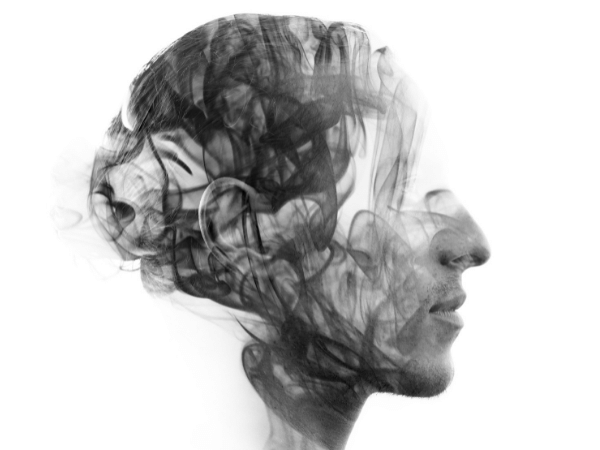There are a lot of reasons why people use hallucinogenic and dissociative drugs. Historically, plants with hallucinogenic properties were used for religious rituals. They induce the state of detachment from reality and precipitate “visions” that create mystical insight. This may include contacting someone from the spirit world or, in the same way, someone with a “higher power.”
Nowadays, people are using hallucinogenic drugs for recreational or social purposes. These people just want to have fun. However, they need help to deal with stress and tension and enter a more enlightened sense of thinking.
Hallucinogens have also been explored as therapeutic agents to treat ailments associated with perceptual distortions, like schizophrenia, OCD, etc. Anecdotal reports and small studies have proposed that ayahuasca may be a potential treatment for substance use disorders and other mental health issues. No large-scale investigation has confirmed its effectiveness (Barbosa, 2012).
Heroin use among young adults ages 18-25 has more than doubled in the past decade. Nine in ten people using heroin also tried at least one other drug. Additionally, 45% of people addicted to heroin are addicted to prescription opioid painkillers.

What Is Heroin Withdrawal
Heroin withdrawal syndrome or heroin use disorder is a life-threatening condition resulting from opioid or heroin dependence. Opioids belong to a group of drugs used to manage severe pain. Examples include heroin, morphine, oxycontin, methadone, codeine, and hydromorphone. These opioids are sometimes abused because they create a feeling of relief and relaxation—even euphoria.
The chronic use of opioids leads to a form of devastating dependence among users. Opioid addiction impacts the user and imposes a significant economic burden on society. It increases healthcare costs, unemployment, premature mortality, and absenteeism.
Heroin withdrawal happens when a heroin-dependent patient suddenly decreases or stops taking heroin.
Can A Person Overdose On Heroin?
Yes. We all heard about it. A person can overdose on heroin. It happens when a person uses enough of the drug to produce a severe reaction, even death. In recent years, heroin overdose has increased exponentially.
When someone overdoses on heroin, their breathing regularly slows or stops. This results into hypoxia, when the oxygen that reaches their brain decreases. Consequnetly, this condition has short and long-term effects on someone’s mental health and nervous system. It includes, and is not limited to, coma and permanent brain damage.
Heroin Withdrawal Symptoms
Heroin withdrawal will never be the same for everyone. However, the longer you use heroin, how you abuse it, and how much you take each time are factors in how dependent your body and brain are on it. Hence, how severe and how long the withdrawal will differ for each person. For someone with a history of mental illness or previous heroin withdrawal, the withdrawal experience might be more intense.
Heroin suppresses some of the central nervous system’s functions like blood pressure, heart rate, respiration, and temperature regulation. This also binds to opioid receptors that increase chemicals in the brain responsible for pleasure. As a result, heroin abuse may bring a rush of pleasure. Other common effects include the following:
- Dry mouth
- Warm flush on the skin
- Arms and legs’ heavy feeling
- Nausea
- Vomiting
- Severe itching
- Mental Fog
- State of conscious and semiconscious
- Insomnia
Other potential effects include clogged blood vessels that lead to the lungs, liver, kidneys, even the brain —which could end with permanent damage. Sharing injection paraphernalia and having impaired judgment can cause patients to get infectious diseases like HIV and hepatitis.

List of Heroin Detox Medication
Heroin addiction is a complex cycle to break, but it is more than possible. In fact, there are a lot of rehab centers that offer inpatient and outpatient recovery programs for heroin detox.
Treatment for heroin addiction is also available. Prescription drug detox helps with the recovery process by reducing cravings and withdrawals. These include the following:
–Buprenorphine – This is a commonly prescribed medication for heroin withdrawal; this reduces craving, vomiting, and muscle pains.
–Methadone – This is a slow-acting and low-strength opiate that helps patients taper off heroin and prevent withdrawal symptoms.
–Naltrexone – This medication stops receptors in the brain that react to heroin and other types of opioids. This is neither addictive nor sedating. It eventually reduces cravings like the two mentioned above and is best for patients who have already completed detox.
Inpatient detox involves 24-hour attention from rehab centers which increases the odds of recovery from heroin addiction.
Outpatient recovery programs require patients to meet with doctors regularly —for check-ups and mental health counseling. If a recovering addict is enrolled in outpatient programs, they can stay home and continue doing their daily routines. However, the chances of staying sober are tough and challenging.
Whichever one you choose, may it be inpatient or outpatient detox medication, confronting your heroin addiction is the first step in the right direction.
Where To Find Help
After taking heroin for a while, people find that when they stop or curb their use, they experience withdrawal symptoms, which causes them to increase their reliance on it. As time progresses, more heroin is needed to experience the same effect you got when using it. When this happens, you know it’s time to get professional detox medication.
As mentioned above, here at Buena Vista Health and Recovery Center, substance abuse treatment therapy is available. Our supportive and experienced medical professionals want patients to get through this entire process as smoothly as possible since they know how uncomfortable this may get and how severe withdrawal symptoms are.
Patients begin with a physical exam, blood tests, and psychological testing to decide the best course of action for each individual’s treatment. We prescribe particular medications to relieve withdrawal symptoms and manage cravings when necessary. Also, helping with the patients sleeping problems and depression can be a part of detox as well.
Buena Vista Health and Recovery Center is dedicated to doing everything and anything possible to make sure that patients are comfortable during the long-term journey toward sobriety. Begin your treatment today! Call us at (800) 922-0095.
CHANDLER
(480) 680-0606
3033 South Arizona Avenue
Chandler, Arizona 85248
TUCSON
(520) 436-7860
5151 East Pima Road
Tucson, Arizona 85712
SCOTTSDALE
(623) 323-7986
8171 E Indian Bend Rd
Scottsdale, AZ 85250






